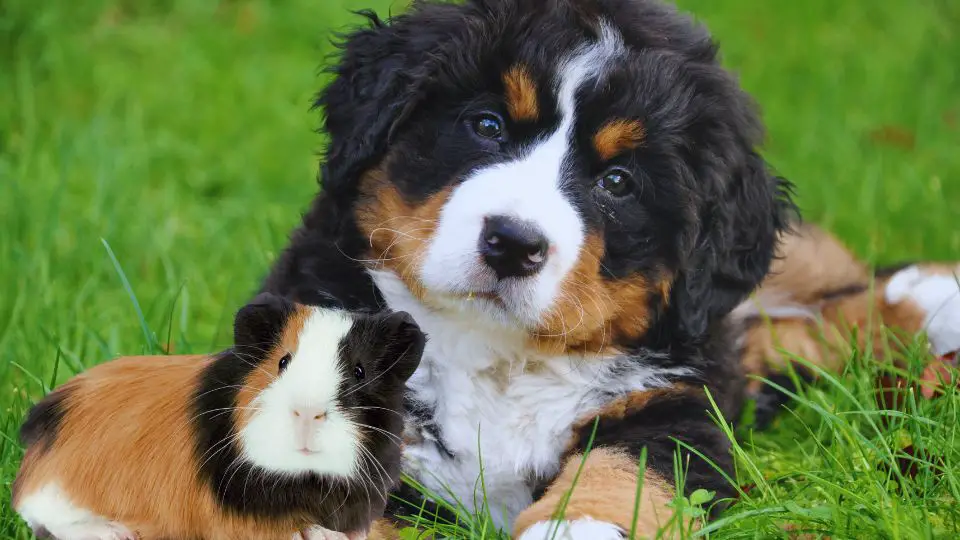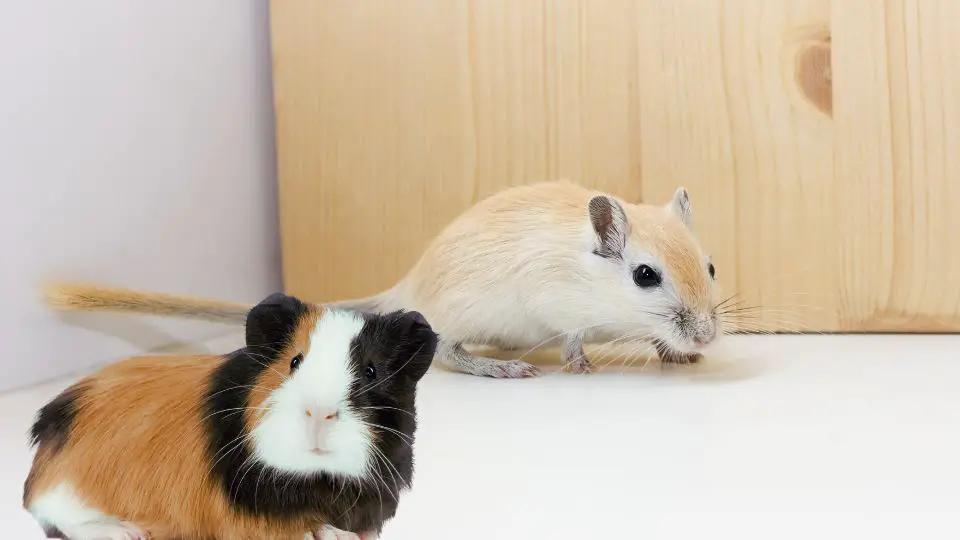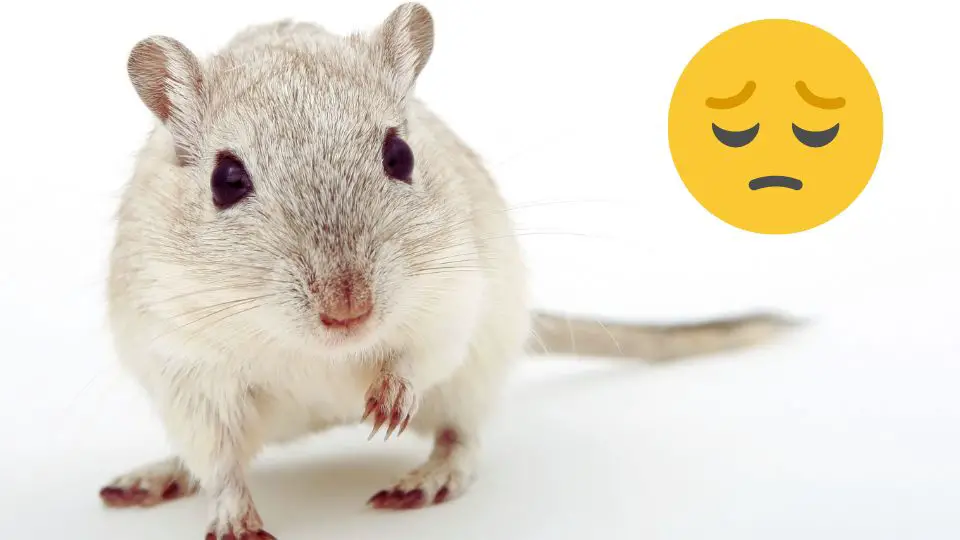One aspect of caring for gerbils involves understanding their bodily functions, including their pooping habits.
Gerbils poop a few times every day. Depending on how much they eat, gerbils can produce between 5 to 20 pellets a day.
In this article, we will explore the typical pooping frequency of gerbils and the factors that can influence it.
Do Gerbils Poop A Lot?
Gerbils typically poop multiple times throughout the day, and their frequency of pooping can vary. On average, gerbils may poop anywhere from 5 to 20 times a day. Factors such as diet, hydration, and overall health can affect how often gerbils poop. Generally, a healthy gerbil will have regular and consistent bowel movements. It is normal for gerbils to produce small, firm, and dark-colored feces.
If you notice a significant decrease or increase in your gerbil’s pooping frequency, it could indicate an underlying health issue. Changes in poop consistency, color, or odor may also warrant attention. Consulting a veterinarian is recommended if you observe any abnormal pooping patterns.
To maintain a healthy digestive system, provide your gerbil with a balanced diet that includes high-quality gerbil food, fresh vegetables, and occasional treats. Ensure they have access to clean water at all times. Maintaining a clean and hygienic cage environment is also essential for their overall well-being.
Can Gerbils Get Diarrhea?
Yes, gerbils can get diarrhea. Too many fruits and vegetables can cause diarrhea in gerbils, but there are various factors, including dietary changes, bacterial or viral infections, parasites, stress, and certain medical conditions.
Tyzzer’s disease is an infectious bacterial disease that primarily affects small animals, including gerbils. Symptoms of Tyzzer’s disease in gerbils may include diarrhea, dehydration, weight loss, rough coat, lethargy, hunched posture, and bloated abdomen.
The bacteria can be present in the environment, including bedding, food, and water sources, and can infect gerbils through ingestion or contact with contaminated surfaces.
Factors Affecting Pooping Frequency
The frequency of a gerbil’s bowel movements can be influenced by various factors, including diet, hydration, and overall health. Understanding these factors can help you monitor your gerbil’s digestive health and ensure their well-being.
Here are some key factors that can affect a gerbil’s pooping frequency:
- Diet: The type and quality of food your gerbil consumes play a significant role in their digestive process. A diet that is high in fiber promotes healthy digestion and regular bowel movements. Gerbils should have access to a balanced diet consisting of high-quality gerbil pellets, fresh vegetables, and occasional treats. A lack of dietary fiber or an abrupt change in diet can lead to constipation or irregular pooping.
- Hydration: Adequate hydration is crucial for maintaining a healthy digestive system. Ensure your gerbil always has access to clean, fresh water. Dehydration can lead to constipation or dry, hard stools, which may affect their pooping frequency. Monitor their water intake and consult a veterinarian if you suspect your gerbil is not drinking enough.
- Overall Health: The general health and well-being of your gerbil can impact their pooping frequency. Gerbils that are sick or experiencing digestive issues may have irregular bowel movements. It’s important to observe any changes in their behavior, appetite, or appearance that may indicate an underlying health problem. If you notice significant changes in pooping frequency along with other symptoms, seek veterinary attention.
- Stress or Environmental Factors: Gerbils can be sensitive to changes in their environment or stressful situations. Events such as moving to a new cage, introducing new gerbils, or disruptions in their daily routine can temporarily affect their digestive system. Stress can lead to changes in pooping frequency, ranging from more frequent to less frequent bowel movements.
Healthy Poop Characteristics
It is crucial to monitor your gerbil’s poop regularly and be alert for any changes or abnormalities. If you notice persistent changes in color, consistency, odor, or frequency of poop, it may indicate a digestive issue, dietary imbalance, or an underlying health condition.
Here are some characteristics of healthy gerbil poop to look out for:
- Color: Healthy gerbil poop is typically dark brown in color. The shade can vary slightly depending on their diet, but it should generally be within the range of brown hues. Significant changes in color, such as bright red or black, may indicate bleeding or other underlying health problems and should be addressed by a veterinarian.
- Consistency: Healthy gerbil poop is firm and well-formed, resembling small cylindrical pellets. It should hold its shape and not be overly soft or runny. Loose or watery stools can be a sign of diarrhea, which may be caused by dietary issues or infections. Conversely, extremely dry and hard stools may indicate dehydration or constipation.
- Odor: Gerbil poop has a distinct but relatively mild odor. It should not have an overpowering or foul smell. Any sudden changes in odor, such as a strong or unusually offensive smell, may indicate digestive problems or the presence of an underlying infection.
- Frequency: Gerbils typically have regular and consistent pooping habits. They tend to eliminate waste multiple times a day. While the exact frequency may vary among individual gerbils, it is important to establish a baseline for what is normal for your gerbil. Any significant changes in pooping frequency, such as prolonged periods without pooping or excessive pooping, should be monitored closely and evaluated by a veterinarian if necessary.
Abnormal Pooping Patterns
It is essential for gerbil owners to be aware of these changes and seek veterinary advice if significant alterations occur. Here are some abnormal pooping patterns to watch out for:
Diarrhea
Diarrhea in gerbils is characterized by loose or watery stool. It can be caused by various factors, including dietary changes, bacterial infections, stress, or certain diseases like Tyzzer’s disease. If your gerbil experiences persistent diarrhea, it is crucial to consult a veterinarian for proper diagnosis and treatment.
Constipation
Constipation is when a gerbil has difficulty passing stool or has infrequent bowel movements. It can be caused by a lack of dietary fiber, dehydration, or other underlying health conditions. If your gerbil shows signs of straining, discomfort, or has dry, hard stool, it is important to seek veterinary advice to alleviate their constipation.
Absence of Poop
If you notice a complete absence of poop in your gerbil’s cage for an extended period, it could indicate an intestinal blockage or a severe underlying health issue. This requires immediate veterinary attention as it can be life-threatening.
Changes in Color or Consistency
Healthy gerbil poop is typically small, firm, and dark brown in color. Any significant changes in color, consistency, or the presence of mucus or blood should be a cause for concern. It may indicate gastrointestinal inflammation, infection, or other digestive disorders.
Excessive Pooping
While gerbils have regular bowel movements, an excessive frequency of pooping, combined with other signs like weight loss or abnormal behavior, can be a sign of an overactive digestive system or a health issue. Consulting a veterinarian can help identify and address the underlying cause.
Maintaining Healthy Digestive System
A healthy digestive system is essential for the overall well-being of gerbils. A properly functioning digestive system ensures efficient nutrient absorption, regular bowel movements, and optimal health. As a responsible gerbil owner, there are several steps you can take to promote and maintain a healthy digestive system for your furry friends.
Here are some tips:
- Balanced Diet: Providing a balanced and nutritious diet is crucial for promoting good digestive health in gerbils. Their diet should consist of high-quality gerbil pellets as a staple, supplemented with fresh fruits, vegetables, and occasional treats. A varied diet helps ensure they receive the necessary nutrients for proper digestion and overall well-being. Avoid overfeeding or sudden dietary changes, as these can disrupt the digestive system.
- Fiber-Rich Foods: Gerbils require a diet rich in fiber to support healthy digestion. Include hay or grass-based products in their diet, as they provide essential roughage and aid in maintaining regular bowel movements. Hay also helps wear down their teeth, which promotes dental health.
- Fresh Water: Access to clean, fresh water is vital for proper digestion. Ensure your gerbil always has access to fresh water in a sipper bottle or a shallow dish. Regularly clean and refill the water source to prevent bacterial growth and ensure hydration.
- Cage Hygiene: Maintaining a clean and hygienic cage environment is important for preventing digestive issues. Regularly remove soiled bedding, droppings, and uneaten food to prevent the growth of harmful bacteria. A clean and odor-free environment promotes healthy digestion and reduces the risk of gastrointestinal infections.
- Avoid Harmful Foods: Some foods can be harmful or toxic to gerbils and should be avoided to maintain a healthy digestive system. These include chocolate, caffeine, alcohol, onions, garlic, sugary foods, and foods high in salt. Additionally, be cautious of foods that may cause choking hazards or digestive blockages, such as large seeds or pits.
- Monitor Digestive Health: Regularly observe your gerbil’s digestive habits and look out for any signs of digestive distress. These may include changes in appetite, weight loss, abnormal stool consistency, or excessive gas. If you notice any concerns or persistent digestive issues, consult a veterinarian who specializes in small animals for proper diagnosis and treatment.
- Exercise and Mental Stimulation: Regular exercise and mental stimulation contribute to a healthy digestive system. Provide your gerbil with opportunities for physical activity and mental enrichment, such as an exercise wheel, tunnels, toys, and interactive playtime outside of the cage. This helps stimulate their digestive system and overall well-being.
Conclusion
Understanding the pooping patterns of gerbils is an important part of their care. While the exact frequency may vary from gerbil to gerbil, it is generally normal for gerbils to poop multiple times a day. By monitoring their pooping habits and being attentive to any changes, gerbil owners can ensure the health and well-being of their furry companions.
If there are any concerns about the frequency or appearance of gerbil poop, consulting a veterinarian is always recommended for proper guidance and care.







